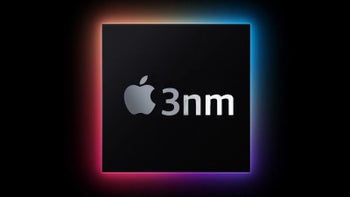iPhone 14 will keep the same 5nm chip as the iPhone 13
We may earn a commission if you make a purchase from the links on this page.

The ongoing global semiconductor chip shortage has been making headlines on a near daily basis lately, as not a single mainstream smartphone brand has been left unaffected. The iPhone 13 is currently experiencing some awful order wait times due to supply chain constraints, despite Apple being one of the last companies to feel the hit.
A report by The Information released yesterday (and covered by 9to5Mac) reveals further evidence that next year's A16 Bionic chip, powering the iPhone 14, will most likely keep the same 5-nanometer architecture as the iPhone 13.
The reality is that the chip shortage could impact Apple much more direly than longer lead times, in a chain reaction that might give other smartphone manufacturer a competitive edge this coming year. This year's fiscal fourth quarter was also the first time since 2016 that Apple fell short of projected revenue estimates in any category.
In spite of all that, Apple is already getting the easier end of the chip shortage, compared to competitors like Samsung who have been struggling more—due to the long-running, at this point interdependent relationship it has established with TSMC. Apple had the foresight to secure 80% of TSMC's chip production early on, and Apple's consistent year-on-year success means 20% of TSMC's total revenue comes from making processors for Apple.
TSMC, the world's biggest semiconductor manufacturer, and Apple's biggest primary contracted foundry, has been facing a serious struggle in its transition to smaller process nodes in the midst of massive order fulfillment delays, which have been the reality since the end of last year.
And while the original plan had been for next year's iPhone series to be fitted with a 3nm chip, we already knew that it was unlikely TSMC could manage it before 2023, and we all expected a 4nm process for the iPhone 14. But the truth seems to be that we won't be seeing any die shrink neither this year, nor the next one.
What does this mean for the iPhone 14 in more concrete terms? According to the report, it simply means that we'll see a much smaller improvement in power and energy efficiency between this year and the next, and we'll have to wait until until 2023 or later for that.
The upshot of TSMC’s struggles is that the iPhone’s processor will be stuck on the same chip manufacturing process for three consecutive years, including next year, for the first time in its history, according to an analysis by The Information of Apple’s previous chips. That could in turn cause some customers to put off upgrading their devices for another year and give Apple’s competitors a bit more time to catch up.
To put that in numbers, Apple brought TSMC $48.08 billion of revenue in 2020, and given Apple's year-on-year growth, TSMC will continue to benefit from its symbiotic relationship with the smartphone maker.
Apple has also been getting special treatment in the way of reduced fees from TSMC. While the chip manufacturer has already announced that as of January 2022, it will be charging twenty percent more for its chips, Apple will be hit only with a three-percent chip cost increase. Both Apple and TSMC are feeling the pressure at this point, though, as per the The Information report.
Like most VIP customers, Apple can be especially demanding. One former TSMC engineer said that after TSMC encountered manufacturing issues with the iPhone 12’s processors in 2020, Apple pressured it to supply more of the chips without raising the total price of the contract.
And in the early years of their partnership, Apple asked TSMC to build at least one additional chip factory in the southern Taiwanese city of Kaohsiung due to concerns about earthquake risk, a former Apple chip executive said. Earlier this year, TSMC said it was open to building a plant in the city.
And in the early years of their partnership, Apple asked TSMC to build at least one additional chip factory in the southern Taiwanese city of Kaohsiung due to concerns about earthquake risk, a former Apple chip executive said. Earlier this year, TSMC said it was open to building a plant in the city.
The full The Information report, which can be found here (although it requires a subscription), offers more details into the intricate relationship between Apple and TSMC, which remains mutually positive for both parties.









Things that are NOT allowed: